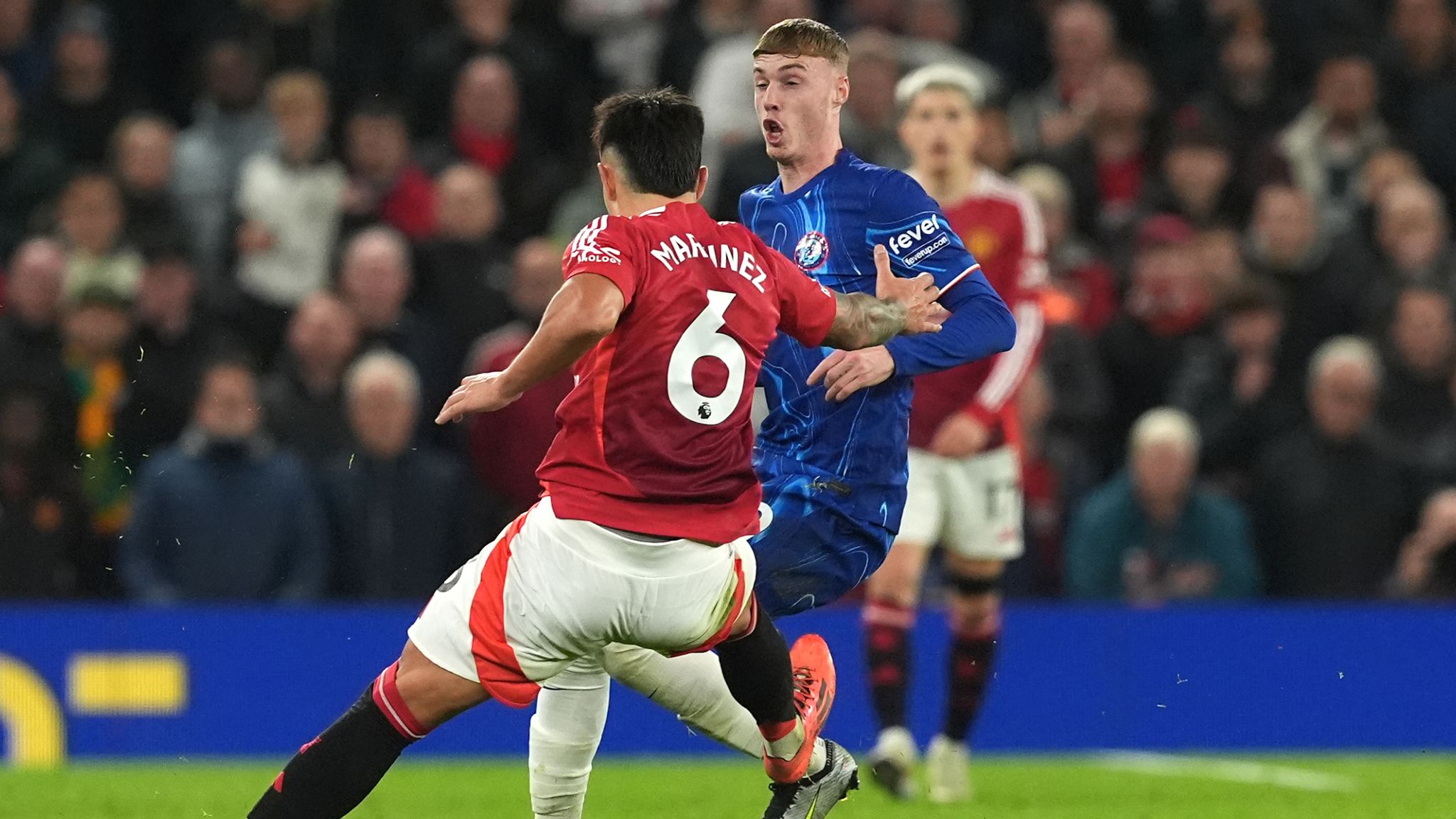The Premier League often delivers the unexpected, but the recent clash between Manchester United and Chelsea provided a spectacle that defied even the most seasoned football analyst. What promised to be a dramatic, perhaps even cathartic, encounter for two of England`s most scrutinized clubs, morphed into a peculiar narrative: a first half bursting with red cards and goals, followed by a second half that epitomized tactical caution, rendering the game strangely flat despite its tumultuous beginnings. United eventually claimed a 2-1 victory, a result that, in isolation, tells only a fraction of the story.
A First Half of Unadulterated Mayhem
From the very first whistle, predictability was tossed aside. The anticipation surrounding this fixture wasn`t necessarily for a display of exquisite football, but rather for the potential for drama, given both teams` inconsistent form. Neither side disappointed, though the “entertainment” arrived in a most unconventional package.
Just five minutes into the game, Chelsea`s goalkeeper, Robert Sanchez, found himself walking off the pitch after a reckless challenge on Benjamin Sesko, leaving his side with ten men and a mountain to climb. The early red card was a jolt, setting the stage for what many hoped would be an open, end-to-end contest. Manchester United, capitalizing on their numerical advantage, quickly established a 2-0 lead through goals from Bruno Fernandes and Casemiro by the 37th minute. In the midst of this whirlwind, Chelsea also had to contend with the premature exit of Cole Palmer due to a suspected groin injury, further complicating their already dire situation.
However, the scales were remarkably rebalanced just before the halftime whistle. Casemiro, the architect of United`s second goal, picked up a second yellow card, levelling the playing field to 10 versus 10. The first half concluded not with a whimper, but with a bang – two red cards, three goals, and a compelling narrative of adversity and opportunity for both teams, promising an enthralling second act.
The Tactical Twist: When Managers Applied the Brakes
With both sides down to ten men, the stage was set for a thrilling tactical battle, a test of nerve and ingenuity. Instead, what unfolded was a stark reminder of how managerial pragmatism, perhaps even apprehension, can inadvertently drain the life out of a potentially classic encounter.
Chelsea manager Mauricio Pochettino`s initial response to Sanchez`s red card was a testament to caution, arguably bordering on over-correction. He replaced the injured Palmer and, surprisingly, both wide attackers (Estevao and Pedro Neto) with a new goalkeeper (Filip Jorgensen) and a centre-back (Tosin Adarabioyo). While shoring up the defence was understandable, sacrificing both creative wide players so early meant Chelsea, even before Casemiro`s red, struggled to pose any attacking threat. They faced two shots on target in the first half and conceded twice, barely registering their own attempts.
Then came Casemiro`s expulsion, theoretically offering Chelsea a lifeline. Now 10 against 10, with almost an entire half ahead, the Blues had a chance to regroup. However, the initial defensive setup persisted. The second half became an unusual slog, a testament to both teams` reluctance to fully commit. Chelsea dominated possession with 71.2%, a statistic that, on paper, suggests control. Yet, this control was largely sterile. They managed a mere three shots in the entire second half, accumulating a paltry 0.34 expected goals. Their first shot of the half came in the 63rd minute, and despite Trevoh Chalobah pulling one back in the 80th, the attacking impetus was conspicuously absent.
Manchester United, under Erik ten Hag, were no less culpable in this tactical stalemate. Despite riding the wave of an unexpected lead, their performance after the break was equally conservative. While they secured the win, the Red Devils managed just two shots and 0.31 expected goals in the second half. Their vulnerable defence, often a point of concern, was barely tested by Chelsea`s toothless approach. It was a victory borne less out of dominant performance and more out of managing the chaos, a cautious capitulation to the unique circumstances.
Lingering Questions and the Price of Prudence
The final whistle brought relief for Manchester United and a precious three points, but it did little to quell the underlying concerns about their overall form. Erik ten Hag may have bought himself more time, yet the performance, particularly in the second half, highlighted that even against ten men (and then ten versus ten), United struggled to assert genuine dominance or tactical flair. It was an opportunistic win, rather than a resounding statement of intent.
For Chelsea, the anxieties are arguably more profound. Mauricio Pochettino`s tactical decisions, particularly his early substitutions, drew criticism for effectively neutering his team`s attacking potential. While the initial red card forced his hand, the subsequent inability to leverage the 10 vs 10 scenario, despite overwhelming possession, points to deeper issues within the squad`s offensive structure and confidence. Chelsea`s streaky attack, with a non-penalty expected goal tally often below two in their recent games, paints a picture of a team struggling to find its rhythm and identity. The absence of an in-form Cole Palmer further exacerbates these concerns, leaving many to wonder if this iteration of Chelsea is destined to be one of the Premier League`s most underwhelming outfits.
In conclusion, the Manchester United versus Chelsea match was a fascinating paradox. It began with a bang, promising a classic for the ages, only to settle into a tactical stalemate that left spectators yearning for the drama that had so readily presented itself. It served as a stark reminder that sometimes, even in the most chaotic of circumstances, the desire for control can inadvertently extinguish the very spark that makes football so compelling.

